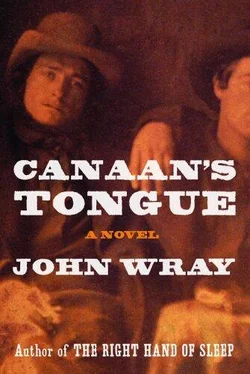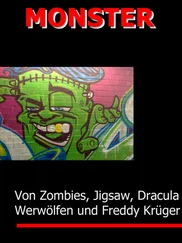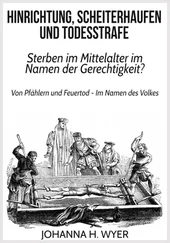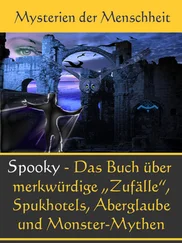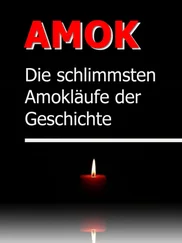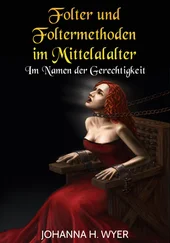I couldn’t have found that landing to save myself from drowning, even in perfect daylight—; and yet in the next instant it emerged, dark and undeniable, from the gray vagueness around us. Bosun was there as well, not ten paces off, panting and cursing and grappling with the tie-line, pulling us in hand over hand—; the next thing I knew we were off again, the weight of his gargantuan body adding a good two inches to our draft. As the landing fell away, Bosun looked about him as I feared he would and, ignoring the Redeemer altogether, said in a dubious voice—:
“This gone carry me to Cincy, marse?”
There was no sound for a time but the Redeemer’s steady working of the pole. “Bosun,” I said at last, with a rush of self-importance. “I should introduce you to the pilot of this run. You have the privilege of sharing this flat-boat with none other than—”
“I don’t mind a damn if it be Ezekiel himself,” Bosun said. I noticed now that he was naked to the waist, that his lips were slick with blood, and that his left arm hung lifelessly from his shoulder.
“Why we headed down this river?” he said very slowly.
“There’s a keel-boat waiting two miles on,” the Redeemer put in, busy with the pole. “We’ll part ways in less than an hour, Mr. Bosun.”
Perhaps it was the exotic sound of being called “Mr.” by a white man, but Bosun took a sharp, shallow breath, gave a loud guffaw, and turned toward the Redeemer. “Two mile on?” he said.
“At Druthers Crick,” said the Redeemer, nodding. “Step a bit to port, Mr. Bosun, if you please.”
Again Bosun let his great laugh loose. “You artful courteous, marse!” he said to the Redeemer. I could see now that his arm was pulled clear of its socket. He jerked his head toward me. “You ought to give this niggra of yours some finishing.”
“Mr. Delamare is not my negro,” the Redeemer said, stopping in mid-pull. “He is a free man, Mr. Bosun—; as free as you or I.”
Bosun took a little step to one side, as if to get out of the way of something rushing past—; when he spoke his voice was tentative as a child’s.
“As you or I?” he murmured.
“That’s right,” the Redeemer said, his voice as mild as Bosun’s. “The hour of your emancipation, Mr. Bosun, has arrived. The hour to put your indentured self behind you.” He gave a courtly bow. “Mr. Delamare and I humbly recommend that you savor it.”
For a minute, perhaps longer, Bosun gave no answer. I’d begun to wonder whether he’d understood the Redeemer’s little oratory when I saw that he was trembling throughout his great body, gasping with slow, hard heaves of his tremendous shoulders. The raft spun and drifted at the current’s pleasure—; we were out in the black middle of the river.
“What gone come of this?” Bosun said at last. “What gone follow?”
“I suggest you choose a name,” the Redeemer said.
Bosun gave his head a shake, as though a fly had landed on his brow. “A name?”
The Redeemer passed the pole to me now and stepped over to Bosun. “That’s right,” he said. “The name you carry was given to you by your first master, Benjamin Thomkins Grady, that you might come to him when he called. He imagined that by giving you that name, he himself, and no other, had called you into being. The name your mother chose to call you was the name of a play-thing, the name of a house-pet, just as Grady’s name was a name for a champion ox. The name you yourself choose, contrary-wise, will be the name of a new-born child.” He smiled. “And whether you answer to it, sir, will be nobody’s business but your own.”
That said, the Redeemer stretched up his arm and touched Bosun gently on the mouth. Bosun bowed his head to receive this touch, bashful and not a little bewildered, like Mary before the archangel Gabriel. His expression shuttled back and forth between exultation and dismay, as though he’d been found guilty, through no fault of his own, of some especially noble crime.
“Tell me your name, pilgrim,” the Redeemer said softly. “Tell it to me and I’ll baptize you here and now.”
A measure of silence passed — I know not how long — then Bosun raised his head. “I should be called ‘Simon,’ after Simon from the desert,” he said, his voice full of wonder at itself.
If that was not the sound of religion, the sound of spirit given voice, then I have never heard it in my life. Nothing earthly was real to Bosun at that moment—: not the Redeemer, not the raft we rode on, not the river at our feet. There was only his own body, the fact of all that it had suffered, and the new name hovering before him in the air. Of his own accord Bosun sank onto his knees.
“I baptize you Simon Morelle,” the Redeemer intoned, splashing a palmful of water over him. “Stand up, Simon, and be counted!”
Bosun got to his feet and ran a fist across his eyes. “Simon Morelle,” he repeated, as if to get the fit of it.
“Holler it out now! Out across the river!” the Redeemer said, his own voice cracking with excitement. “Holler so they can hear you back on Benjamin Grady’s land. Let them hear your name, Simon! Let them hear your name and know it!”
Bosun hesitated for the briefest instant—; then he smiled and sucked in an eager breath. “ Simon Bosun Morelle !” he shouted, laughing as the raft spun slowly clockwise.
“ ‘And I am a free man!’ ” the Redeemer crowed, tapping Bosun on the shoulder.
“I a new-born child! A god-damn baby child !” Bosun yelled at the top of his voice. All hurt and weariness seemed to have left him. To my full and perfect amazement he brought his hands together and clapped. “Mr. Benjamin Grady! I be Simon Once-Was-Bosun and Morelle!”
“So be it,” the Redeemer said.
The next sound I heard was of Bosun’s backside crashing against the planks. The echo came after, by way of the far side of the river, turning over on itself and whipping against my forehead like a switch. The sound was loud enough to have come from a brace of cannon—; the weapon in the Redeemer’s palm, however, was no larger than a bottle of perfume.
I gaped at him a moment, then looked down at Bosun, heaving and jerking at my feet. Bosun, whom I had come across one day coming in quietly from the fields. “Merciful Jesus,” I said.
I passed the back of my hand over my mouth, then turned toward the Redeemer, fully expecting to be next.
“You asked me what became of them, Oliver,” he said, handing me the pistol.
Sweet bloodied world, I said noiselessly, pressing the barrel to Bosun’s temple. Sweet blood-besotted life.
OVER THE NEXT QUARTER-HOUR, still drifting with the current, we stripped Bosun of his clothes, ripped his belly open, and pulled the guts out of him so that he would sink. In the blink of an eye he was gone under the river. My new and vulnerable understanding was plunged into bewilderment yet again by the fact that the Redeemer was weeping freely. When I finally found the courage to ask why in heaven’s name he’d done it, he clucked and laid a finger to my lips.
“I’d meant for you to look, Oliver. Not to avert your eyes.”
“But why? Why kill Bosun, sir? What had Bosun done?”
“Bosun did well, God bless him. Bosun played his part.”
I waited the better part of a minute for him to say more. “What of us, then?” I asked, when I could stand it no longer. “Did we play ours?”
“We did, Oliver.” He sighed. “We gave our Simon the only freedom he could ever know.”
I let my head sink down against my chest, just as Bosun had done at his baptism. Even as I sensed that the Redeemer was speaking to me as though to a child or an idiot I believed his words implicitly. More than that—: I knew them to be true. The look on Bosun’s face as he sang out his name had not yet left my thoughts, nor would it ever. I myself was never to know such freedom.
Читать дальше
